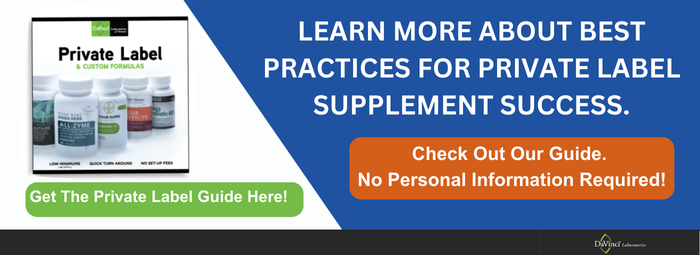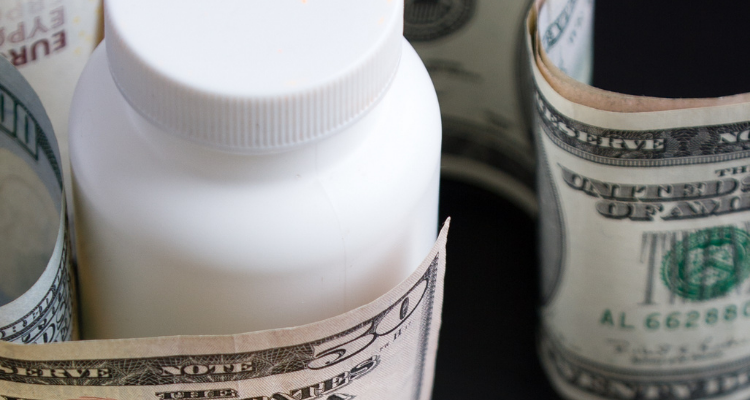
Launching a unique line of private-label supplements may be a new venture for your business. However, the supplement industry has unique regulations, and understanding the intricacies of FDA approval and regulation is central to success.
So, exactly how does the FDA regulate supplements? Can you get supplements approved by the FDA? Here’s what to know.
understanding the fda's role with dietary supplements
The FDA is responsible for the safety and efficacy of drugs, medical devices, biological products, and the food supply. It reviews products and grants approval before selling products to the public. However, supplements and their requirements have a different process.
dietary supplements and fda authority
When it comes to regulation, customers and brand owners often ask the same question: Does the FDA approve supplements? In short, no. Supplements fall under the Dietary Supplement Health and Education Act (DSHEA), which gives the FDA authority over supplements and ingredients only after you sell them to the public.
Why? Because these products are not drugs. The DSHEA defines a supplement as a product that contains a dietary ingredient, such as a vitamin, mineral, herb, amino acid, enzyme, or extract that you ingest to supplement your diet.
These products fall into a category similar to foods and can help meet nutritional needs. The goal of a supplement is not to treat disease but to support the diet and promote overall health, so they do not undergo testing for effectiveness the way drugs do. So, the FDA only has authority over supplements once they become available.

authorized health claims and pre-market approval
That said, dietary supplements do have a type of pre-market approval system called the Significant Scientific Agreement Standard (SSA). Under the SSA, the FDA reviews data and creates an authorized health claim that links a dietary ingredient and disease.
These claims are a consensus among health experts about a supplement or component and its effectiveness in reducing disease risk. For example, experts agree that adequate calcium and vitamin D intake throughout life may prevent osteoporosis.
A product that contains calcium or vitamin D can use this claim to show it can reduce the risk of disease. In essence, SSA and authorized health claims give advance approval for specific supplement uses and marketing. These claims require approval by the FDA prior to going to market. Before making a health claim, do your research.
are dietary supplements regulated by the fda?
Yes. While the FDA doesn't approve supplements to diagnose, treat, cure, or prevent disease or ease symptoms, it does regulate supplements under DSHEA. These regulations involve quality control and manufacturing, labeling, and post-market monitoring.
quality control and manufacturing standards
The Food, Drug, & Cosmetic Act requires supplement manufacturers to produce and distribute products that are not adulterated or misbranded. They must follow Good Manufacturing Practices (GMPs) to control quality, including preventing contamination and using hygienic practices. Manufacturing facilities must also register with the FDA and undergo routine inspections.
labeling and marketing
Every supplement available and sold on the market must have a label and appropriate marketing. FDA regulations state that the label must include, at minimum:
- The product name
- The term “dietary supplement”
- Name and address of the manufacturer
- Nutrition labeling called Supplement Facts
- Ingredient list
- Net quantity of contents
- Serving size
- Servings per container
- Phone number or address to report adverse events
- Allergen statements, if any are present
The FDA also regulates label language and marketing. Health claims must follow a specific format or include only authorized health claims for ingredients with an SSA standard. All other marketing claims must focus on how the supplement supports bodily functions and overall health and avoid language suggesting it can treat, prevent, cure disease, or improve symptoms. Claims such as these are known as “structure function claims”.
post-market monitoring
Finally, the FDA monitors the marketplace to enforce laws and confirm that manufacturers and products meet supplement regulations. The FDA may:
- Perform inspections
- Review reports of marketing violations
- Examine products for import
- Investigate reports of adverse events or complaints
the role of supplement manufacturers
Manufacturers are critical in producing high-quality products that positively impact consumer health and meet FDA regulations. By law, the onus is on the manufacturer to verify quality and safety.
ingredient quality and supplement safety
Manufacturers are responsible for evaluating and disclosing ingredients, producing supplements in a hygienic facility, and labeling. Good manufacturing practices can help companies identify quality ingredients and monitor their strength, purity, and composition.
These include:
- Testing raw materials, in-process samples, and finished products
- Maintaining batch records
- Performing stability and microbial testing
- Maintaining evidence records to support health claims
- Recording customer complaints and product recalls
With strict attention to sourcing, formulation, labeling, and production practices, manufacturers can produce safe and quality products.
third-party testing and certification
Testing and certification provide another layer of safety and quality for the manufacturer and the consumer. Testing and certification verify product quality and safety, protect the public from harm, and help manufacturers confirm good practices to avoid regulatory action.
Manufacturers can hire an outside organization to perform independent testing and certification to confirm a product meets quality and safety standards. A certification verifies the:
- Product contains what is on the label
- Formula and dosing are not toxic
- Product doesn’t have unlisted ingredients or unacceptable levels of contaminants
can you sell supplements that are not fda-regulated?
No, your products must meet the laws and regulations. The FDA doesn’t approve or pre-approve supplements for purposes of treating disease. However, it does regulate all supplements for quality, safety, and marketing. You may not sell banned products or ingredients, contaminated or adulterated products, or products with unauthorized health claims.
bottom line
FDA-approved supplements do not exist. The FDA does not pre-approve products for public use or safety. Instead, it regulates products after they become available in the marketplace, monitoring labeling, manufacturing practices, and safety. Partnering with an established manufacturer can help you navigate regulatory complexities.


















